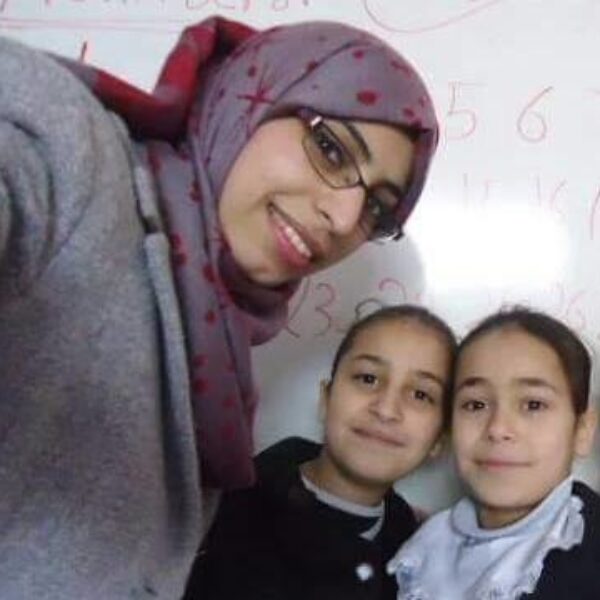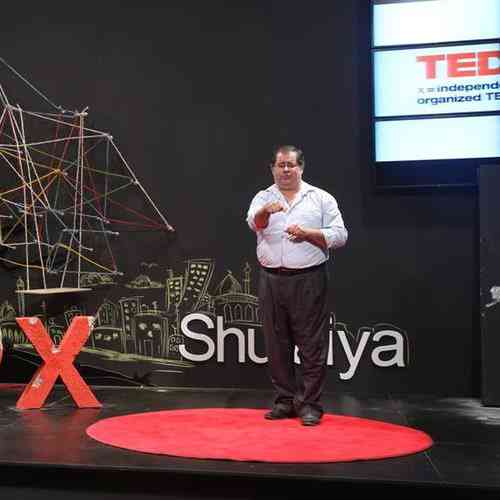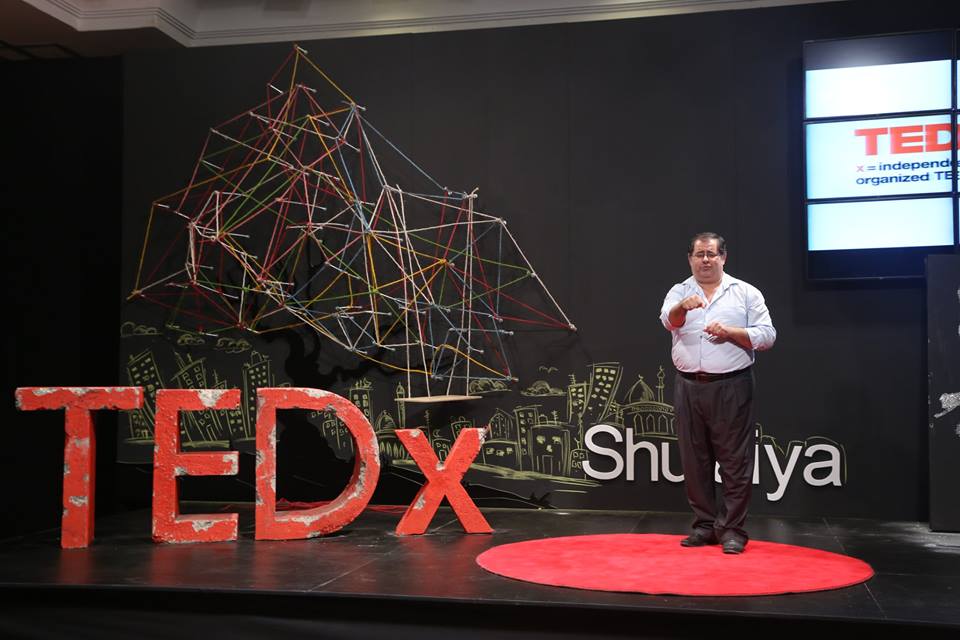
One of the best days of my life was when I worked as a volunteer for the exhibition and logistics teams at last fall’s TEDx Shujaiya event. It was an experience of which I will always be proud, because it showed just how much the people of Gaza can be an inspiration for the entire world. Listening to the speakers’ talks made me feel like a little kid: astonished, smiling and thankful for every word they spoke, for their self-confidence, willpower and determination to share their voices and stories with both the local and global audience.
One of the most inspiring speakers was Hashem Ghazal. I did not hear his voice; instead someone else spoke for him. But I could “feel” him, and his soaring spirit touched each member of the audience. He spoke with his hands, straight from the heart. With his hands, he painted pictures of his life beginning with his birth and childhood and extending to the present, step by step and full of drama. He called on us to listen with our eyes rather than with our ears.
He began by greeting everyone of different color, sex and class, affirming that we all share a single language of humanity that does not differentiate between a deaf-mute and a speaker.
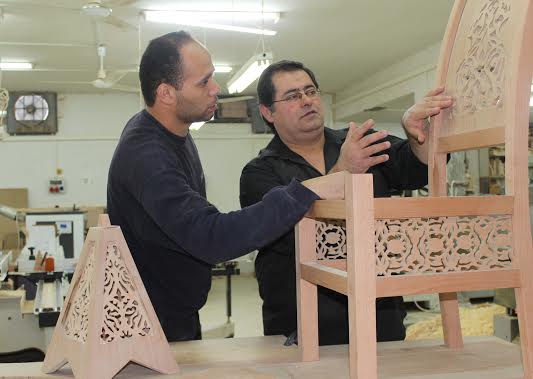
Hashem was born in Gaza in 1967—the youngest of nine, of whom six were deaf-mute. His father died when he was 3 and his mother assumed the responsibility of educating him. Sadly, she could not find a school who could teach him, so he stayed home, communicating with his mother in the sign language she had learned. He wanted to play soccer with the other boys, but they insulted him and called him names.
When Hashem turned 11, his mother looked for vocational training for him, but when people learned he was hearing-impaired as well as mute, they refused to work with him. Finally, he found a job as a carpenter’s apprentice, but was mistreated because he couldn’t speak and none of his co-workers could understand sign language. He could see from their their facial expressions they didn’t like him. He endured insults and physical abuse and often came home crying. Seeing his passion for woodworking, his mother agreed to let him make a small carpentry workshop in their home.
When he turned 18, he wanted to marry. Hashem’s mother began looking for a girl for him, but it wasn’t easy to find a young woman who would consider a hearing-impaired man. Finally, they found a good match. He mother taught her sign language and the couple had a daughter, who also was hearing-impaired. Hashem didn’t want her to face the suffering he endured as a child and looked for a school that could help her, but found nothing. He was even considering leaving Gaza when a friend told him about an organization called the Atfaluna Society for Deaf Children. He went directly there and spoke with the director, who promised him his daughter could develop to have the same rights as any other child.
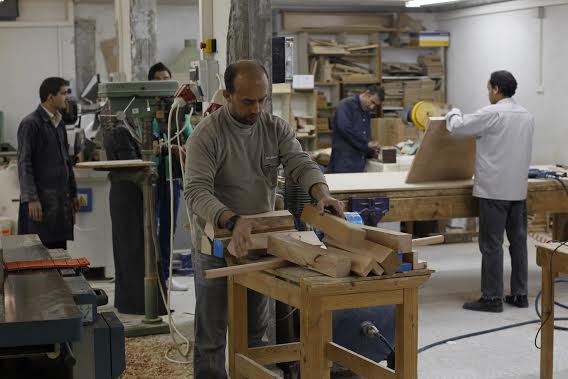
Hashem began helping by teaching sign language to children at the school. He was astonished to see how many there were; he had spent his life thinking he was the only hearing-impaired person in Gaza.
Today Hashem is father of nine; six hearing-impaired and three speakers. He teaches and shows them by example that they should not let grief, depression or shyness stop them from doing what they want in life. His eldest daughter, whom he worried about so much when she was born, now works as a teacher of the hearing-impaired and is engaged to be married to a speaking man.
Hashem now runs the society’s Carpentry Department. He is known throughout the Gaza Strip as the “Godfather of the Deaf,” and before the blockade was imposed by Israel and Egypt, traveled all around the world to represent the hearing-impaired of Gaza and display the society’s products. In his travels he also has learned much more about the hearing-impaired and new techniques and technologies to help them. Unfortunately, however, the blockade has stopped him from traveling.
Hashem sees his life as a gift from God for which he should always be thankful. He says he loves life and that life loves him. Adapting a popular Gazan saying (“He who has nothing cannot give it”), he closed his presentation with the words: “He who has nothing can give intensely.”
Mentor: Peter Cohen
Posted February 26, 2016

